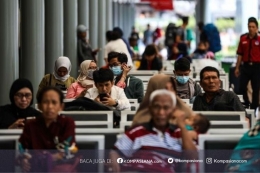In many countries, the government proposes various schemes to help people fulfill their housing needs. One of the schemes proposed in Indonesia is TAPERA (Tabungan Perumahan Rakyat). TAPERA aims to help citizens save consistently to buy or build a decent home. However, this scheme has generated mixed views.
Some support TAPERA as it is perceived to improve people's access to housing, while others are concerned about the additional financial burden and potential problems in fund management. The arguments in favor of both perspectives are discussed below.
One of the arguments in favor of TAPERA is that the scheme helps improve housing accessibility for the community. With TAPERA, people are required to save consistently so that they have sufficient funds to buy or build a decent house. This can reduce the gap between high- and low-income earners in obtaining adequate housing. For low-income families, saving regularly in TAPERA can be an effective way to realize the dream of owning their own home without having to rely on government assistance or high-interest loans.
In addition, TAPERA is also expected to have a positive impact on the economic sector. With increased demand for housing, the construction industry will expand, creating new jobs and driving economic growth. This increased economic activity will not only be limited to the construction sector but will also extend to other sectors such as building materials, transportation, and services. TAPERA can be a catalyst for broader and more sustainable economic growth.
Furthermore, TAPERA can provide long-term benefits for its participants. With savings that are professionally managed and invested wisely, TAPERA participants not only save for housing needs but also have the potential to benefit from investment returns. These profits can be used to meet housing needs or other needs in the future. Thus, TAPERA not only helps the community meet its current housing needs but also prepares them for a more financially stable future.
However, there are also a number of issues faced with the implementation of TAPERA. One of the main concerns is the additional financial burden that people will have to bear. Many argue that mandatory contributions to TAPERA could add to monthly expenses, especially for those who are already struggling to make ends meet. If salaries are already mediocre, how can they possibly set aside money for this savings scheme without sacrificing other needs?
There are also concerns about the transparency and management of TAPERA funds. Critics worry that without strict oversight, the funds collected could be misused or inefficiently managed. People need assurances that their funds will be managed properly and safely and will provide tangible benefits to them in the future.
Conversely, while it is true that mandatory contributions can be a burden, TAPERA is actually designed to help people achieve their long-term goal of home ownership. With government support, it is expected that these funds will be well managed and provide optimal benefits to participants. The government also needs to ensure transparency and accountability in the management of TAPERA funds to build public trust.
In conclusion, TAPERA has great potential to help people fulfill their housing needs and boost economic growth. However, to succeed, the scheme must be managed transparently and effectively and take into account the financial capacity of the community so that it does not become an additional burden. With proper planning and implementation, TAPERA can be a sustainable solution to Indonesia's housing problems.
Baca konten-konten menarik Kompasiana langsung dari smartphone kamu. Follow channel WhatsApp Kompasiana sekarang di sini: https://whatsapp.com/channel/0029VaYjYaL4Spk7WflFYJ2H





